Florida PIP Explained: How Personal Injury Protection Affects Your Settlement
David Comras | Oct 20 2025 15:32
Florida PIP Explained: How Personal Injury Protection Affects Your Settlement
If you’ve been injured in a Florida car accident, you’ve probably heard the term PIP thrown around by insurance representatives and medical offices. It stands for Personal Injury Protection, and it’s a crucial part of every Florida auto insurance policy. Understanding how PIP works—and how it affects your potential settlement—is key to protecting your rights and your recovery.
This guide explains what PIP covers, the rules that make it unique to Florida, and the practical steps you should take after an accident to make the most of your benefits.
What Is PIP in Florida?
Personal Injury Protection (PIP) is a form of no-fault insurance coverage required for all registered vehicles in Florida. The purpose of PIP is to ensure that injured people can receive immediate medical care and partial wage reimbursement after a crash—regardless of who caused the accident.
By law, Florida drivers must carry at least $10,000 in PIP coverage. This means that your own insurance pays a portion of your medical bills and lost wages after a crash, even if another driver was at fault. The goal is to reduce delays and disputes over fault so injured drivers can get care quickly.
However, PIP has specific limits and rules that can dramatically affect your claim.
What PIP Covers
Under Florida law, PIP typically pays:
-
80% of reasonable medical expenses, up to your policy limit.
-
60% of lost wages if your injuries prevent you from working.
-
$5,000 in death benefits to surviving family members if the accident is fatal.
Medical expenses can include hospital visits, diagnostic imaging, rehabilitation, and prescription medication. “Reasonable” expenses are determined by insurance guidelines and fee schedules set by the state.
If your bills or losses exceed your $10,000 limit—or if your injuries meet a certain severity threshold—you may have the right to pursue a claim against the at-fault driver’s bodily injury liability coverage.
The 14-Day Rule: A Crucial Deadline
One of the most important aspects of Florida’s PIP law is the 14-day rule. To qualify for PIP benefits, you must receive medical treatment within 14 days of the accident.
Failing to do so can result in losing your right to coverage. This rule was designed to prevent fraudulent claims and to ensure that injuries are treated and documented quickly.
Acceptable forms of medical care include visits to:
-
Hospitals or emergency rooms
-
Licensed physicians
-
Chiropractors
-
Urgent care centers
-
Emergency medical technicians (for initial evaluation)
Even if you feel fine, it’s smart to get checked by a doctor as soon as possible. Soft tissue injuries, concussions, or internal damage often don’t show symptoms immediately. Early documentation can make or break your case.
Emergency Medical Condition (EMC) Limitation
You may have noticed that PIP benefits sometimes don’t reach the full $10,000 limit. That’s because of Florida’s Emergency Medical Condition (EMC) rule.
If your provider determines that you have an EMC—meaning your injury could cause serious jeopardy to your health, bodily function, or organs—you can access the full $10,000 in PIP benefits.
If no EMC is diagnosed, your benefits are limited to $2,500. This distinction often confuses claimants and can significantly affect available coverage. It’s essential that your medical provider properly documents whether your condition qualifies as an EMC.
How PIP Interacts With Other Insurance Coverages
PIP is just one part of Florida’s complex auto insurance system. Here’s how it connects with other common types of coverage:
-
Bodily Injury (BI) Liability: Covers injuries to others if you are at fault. You can pursue a BI claim against another driver if your injuries are serious enough to exceed PIP limits.
-
Uninsured/Underinsured Motorist (UM/UIM): Protects you when the at-fault driver has little or no coverage. UM benefits can fill the gap once your PIP and BI claims are exhausted.
-
MedPay: Optional coverage that can supplement your PIP to cover the remaining 20% of medical bills PIP doesn’t pay.
-
Health Insurance: Can also apply after PIP benefits are exhausted, depending on your policy.
Understanding how these coverages overlap helps you and your attorney structure your claim efficiently, ensuring no available benefit is overlooked.
How PIP Impacts Your Settlement
PIP is often the first layer of recovery in an accident claim. It provides immediate financial relief for medical expenses and lost income. However, because PIP payments are capped and partial, they rarely cover all damages—especially in moderate or severe injury cases.
Your final settlement from the at-fault driver’s insurance will typically subtract what PIP has already paid, since those benefits are considered part of your total recovery. This means that even though PIP provides fast coverage, it also influences the structure and negotiation of your long-term settlement.
For example, if your total medical expenses are $20,000, and PIP pays $8,000, the at-fault driver’s insurer may only be responsible for the remainder, depending on fault, coverage limits, and medical documentation.
Common PIP Disputes
Despite being designed to simplify claims, PIP can lead to disagreements between insurers, providers, and patients. Common disputes include:
-
Delayed or Denied Payments: Insurers may question whether treatment was related to the crash or whether bills were “reasonable.”
-
EMC Classification Issues: Failing to get a documented EMC may limit benefits to $2,500.
-
Billing Discrepancies: Providers may charge more than the insurer considers customary, creating balance bills.
-
Coverage Exhaustion: Once PIP limits are reached, medical offices may stop accepting the insurance, forcing you to rely on other coverage.
Having a lawyer review your claim ensures that deadlines are met, documentation is complete, and unfair denials are challenged.
The Role of Medical Documentation
Accurate and timely medical records are essential for any PIP or injury claim. Documentation should include:
-
Initial emergency or urgent care evaluations
-
Specialist referrals
-
Treatment plans and follow-up appointments
-
Diagnostic results (X-rays, MRIs, CT scans)
-
Physical therapy records
These records serve as proof that your injuries are legitimate and that you’ve followed medical advice. They also help calculate future treatment needs and long-term costs—key factors in settlement negotiations.
Coordinating PIP With Wage Loss Claims
If your injuries prevent you from working, PIP covers 60% of lost wages, up to your policy limit. To claim these benefits, you’ll need:
-
A doctor’s written verification that you cannot work.
-
Employer documentation confirming your usual wages or salary.
-
Copies of pay stubs or tax returns.
Because the benefit is partial, many injured individuals also pursue claims for the remaining lost income through at-fault insurance or through civil litigation when applicable.
When to Seek Legal Help
While you’re allowed to file and manage a PIP claim on your own, consulting an attorney early can make a significant difference. Florida’s insurance regulations are detailed, and small mistakes—like missing the 14-day window or incomplete EMC documentation—can cost thousands of dollars in benefits.
An attorney helps by:
-
Reviewing medical and billing records for completeness.
-
Ensuring all claims are submitted correctly and on time.
-
Coordinating PIP with bodily injury or UM claims.
-
Negotiating reductions on unpaid or disputed medical bills.
-
Protecting you from adjusters who might undervalue your case.
Many lawyers offer free consultations to review PIP eligibility and discuss options for further recovery.
Key Takeaways
-
Florida law requires $10,000 in PIP coverage for every driver.
-
You must seek medical treatment within 14 days to qualify for benefits.
-
Emergency Medical Condition (EMC) status determines whether you receive the full $10,000 or only $2,500.
-
PIP covers 80% of medical costs and 60% of lost wages, up to the policy limit.
-
Proper documentation, timely medical care, and experienced legal guidance ensure full use of your benefits.
Final Thoughts
PIP was created to make accident recovery smoother, but in practice, it often introduces confusion about what’s covered and how much is owed. By understanding its limits and requirements, you can take proactive steps to protect your claim and your health.
The most important thing after any accident is to get medical attention quickly, keep all records, and ask questions early. With the right information and support, you can focus on healing while knowing your claim is on the right track.



